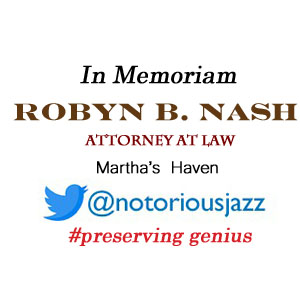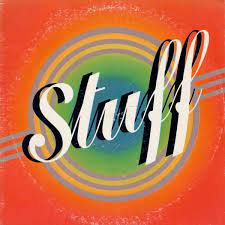
Daily Dose Of Jazz…
Herbie Lovelle was born June 1, 1924 in Brooklyn, New York. His uncle was drummer Arthur Herbert. He began his career in the late 1940s with the trumpeter, singer and bandleader Hot Lips Page. By the 1950s he was playing with the saxophonist Hal Singer, Johnny Moore’s Three Blazers and the pianist Earl Hines.
Through working for both Lucky Thompson and Jimmy Rushing of Count Basie’s Orchestra, he became house drummer at the Savoy Ballroom in New York City for much of the 1950s. He toured with the tenor saxophonist Arnett Cobb and the pianist Teddy Wilson in 1954.
He contributed to the pianist Paul Curry’s album Paul Curry Presents the Friends of Fats in 1959. Then in the early years of television, Herbie performed with the King Guion Orchestra on the Jerry Lester Show and the Ed Sullivan Show. In 1966, he was the lead drummer for the Sammy Davis, Jr. TV show.
During the 1950s Lovelle began playing more R&B and worked as a studio musician recording behind Sam Taylor, Bob Dylan, Pearls Before Swine, Eric Andersen, David Blue, John Denver, Tom Rush, B. B. King, John Martyn, the Strangeloves, the McCoys, and the Monkees. He continued working as a studio musician well into the 1980s.
In 1976, he produced the first album by Stuff, which went platinum in Japan. He also played drums in the 1976 revival of Guys and Dolls. From the 1980s on he acted in film and television, on such shows as Law & Order and Third Watch. His film credits ~ A Man Called Adam, Bella, Mitchellville, The Rhythm of the Saints, Don’t Explain, The Curse of the Jade Scorpion, and Down to Earth among others.
His list of recordings as a studio musician extended across genres to some six dozen albums with jazz notables Candido Camero, Buck Clayton , Art Farmer, Herbie Mann, Sonny Stitt, Budd Johnson, Buddy Tate, Chico O’Farrill, Evie Sands, Johnny Hodges, Nat Adderley, Tony Bennett, Illinois Jacquet and numerous others. Drummer, producer and actor Herbie Lovelle transitioned on April 8, 2009 in New York City.
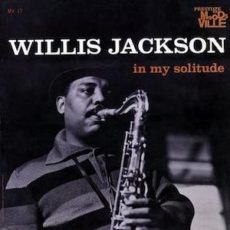
Daily Dose Of Jazz…
Willis “Gator” Jackson was born on April 25, 1928 in Miami, Florida and educated at the University of Miami. In 1948 he joined the Cootie Williams band as a teenager, and was part of it on and off until 1955.
Under his own name, Willis Jackson and His Orchestra, he recorded various rhythm-and-blues instrumentals for Atlantic Records. His most famous record for Atlantic is Gator’s Groove in 1952, with Estrellita as the B-side.
He toured as leader of the backing band for singer Ruth Brown. Publicly they were married, but privately they never were but lived together from 1950 to 1955. Joining Prestige Records in 1959, he made a string of albums with Pat Martino, Brother Jack McDuff, and Johnny “Hammond” Smith among many others. He also recorded for Atlantic, Muse, Trip, Big Chance, Verve, and Argo record labels.
Tenor saxophonist Willis “Gator” Jackson transitioned in New York City one week after heart surgery on October 25, 1987 at the age of 55.
More Posts: bandleader,history,instrumental,jazz,music,saxophone

Daily Dose Of Jazz…
Jimmy Lewis was born April 11, 1918 in Nashville, Tennessee learned to play the bass and though little is known about his early years, he began working professionally with the Count Basie Orchestra and sextet in the 1950s. He went on to perform with Duke Ellington, Cootie Williams, Billie Holiday and Ivory Joe Hunter.
Moving to bass guitar during his time with King Curtis, Jimmy freelanced profusely, recording on over four dozen jazz, soul and R&B albums. He was a sideman and sessionplayer with Solomon Burke, Billy Butler, Al Casey, David Clayton-Thomas, Sam Cooke, Lou Donaldson, Byrdie Green, Grant Green, Tiny Grimes, John P. Hammond, Richard “Groove” Holmes, Alberta Hunter, Willis Jackson, Boogaloo Joe Jones, Charles Kynard, Johnny Lytle, Freddie McCoy, Galt MacDermot, Modern Jazz Quartet, Idris Muhammad, Mark Murphy, Houston Person, Sonny Phillips, Wilson Pickett, Otis Redding, Dave Pike, Arthur Prysock, Horace Silver, Johnny “Hammond” Smith, Buddy Terry, Charles Williams.
Continuing to perform and record up until the Eighties, double bassist Jimmy Lewis, who provided the basslines for the Broadway musical Hair, transitioned in New York City in 2000.
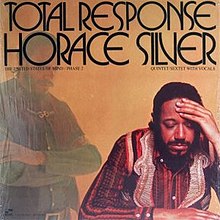
The Quarantined Jazz Voyager
Reading the history of humanity, evidence proves that bad decisions are not relegated to bad people but are also made by good people. If taking off a face mask is your back to normal, in my opinion, you’re not reaching high enough and the brass ring has passed you by. Legislators and the media are confounding the public with different opinions, playing the he said she said game. The collusion is abomidable and most are buying into it. Remain vigilant, protect yourself, remain healthy.
This week I have chosen Total Response (subtitled The United States of Mind Phase 2) for our listening pleasure. It is an album by pianist Horace Silver that was recorded on two separate dates, November 15, 1970 (tracks 1,2,6,9) and January 29, 1971 (tracks 3,4,5,7,8). It was recorded at Van Gelder Studios in Englewood Cliffs, New Jersey, released in April 1972 on Blue Note Records, and produced by Francis Wolff and George Butler.
In 2004, it was included as the second of a trilogy of albums compiled on CD as The United States of Mind. Track List | 45:11 All compositions by Horace Silver
- Acid, Pot or Pills ~ 4:26
- What Kind of Animal Am I ~ 3:38
- Won’t You Open up Your Senses ~ 3:56
- I’ve Had a Little Talk ~ 3:46
- Soul Searching ~ 4:15
- Big Business ~ 5:22
- I’m Aware of the Animals Within Me ~ 3:45
- Old Mother Nature Calls ~ 6:17
- Total Response ~ 5:22
- Horace Silver – electric piano
- Cecil Bridgewater – trumpet, flugelhorn
- Harold Vick – tenor saxophone
- Richie Resnicoff – guitar
- Bob Cranshaw – electric bass
- Mickey Roker – drums
- Salome Bey (1, 2, 5-7, 9), Andy Bey (3, 4, 8) – vocals
More Posts: adventure,album,club,genius,jazz,museum,music,piano,preserving,restaurant,travel

Daily Dose Of Jazz…
Alain Mion was born of French extraction on January 14, 1947 in Casablanca, Morocco but was raised in Paris, France.Influenced by Bobby Timmons, Ray Charles and Les McCann, his style varies between jazz, soul jazz and funky music. By the time he was 19 he formed his own trio and performed at the Blue Note. This subsequently led to him gigging at various festivals with Hank Mobley and Philly Joe Jones.
1974 Alain created the jazz funk group Cortex and recorded a dozen albums before embarking upon a career under his own name in 1982, recording to date eleven albums, such as Pheno-Men, Alain Mion in New York recorded with David Binney and Marc Johnson, and Some Soul Food recorded in Stockholm, Sweden with Patrik Boman and Ronnie Gardiner.
In 2008, he emerged with a new group, Alain Mion FunKey Combo with drums, bass and a saxophone section consisting of Italian and French musicians. He reinvented his new group Alain Mion & The New Cortex with the singer Adeline de Lépinay reprising the role originally performed by Mireille Dalbray on the Troupeau Bleu album.
In the United States, Alain Mion and Cortex’s songs have been sampled by several hip-hop artists including but not limited to Madlib, Fat Joe, DJ Day, MF DOOM, Wiz Khalifa, Curren$y, Mellowhype, Tyler The Creator, Rick Ross, and Lupe Fiasco.
Pianist, composer, arranger, and vocalist Alain Mion continues his exploration of the jazz idiom.
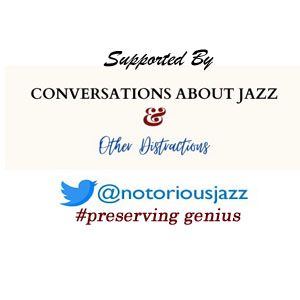
More Posts: arranger,bandleader,composer,history,instrumental,jazz,music,piano,vocal




